NOÉMI VISKI
CURATORIAL
WRITINGS
ABOUT
CURATORIAL
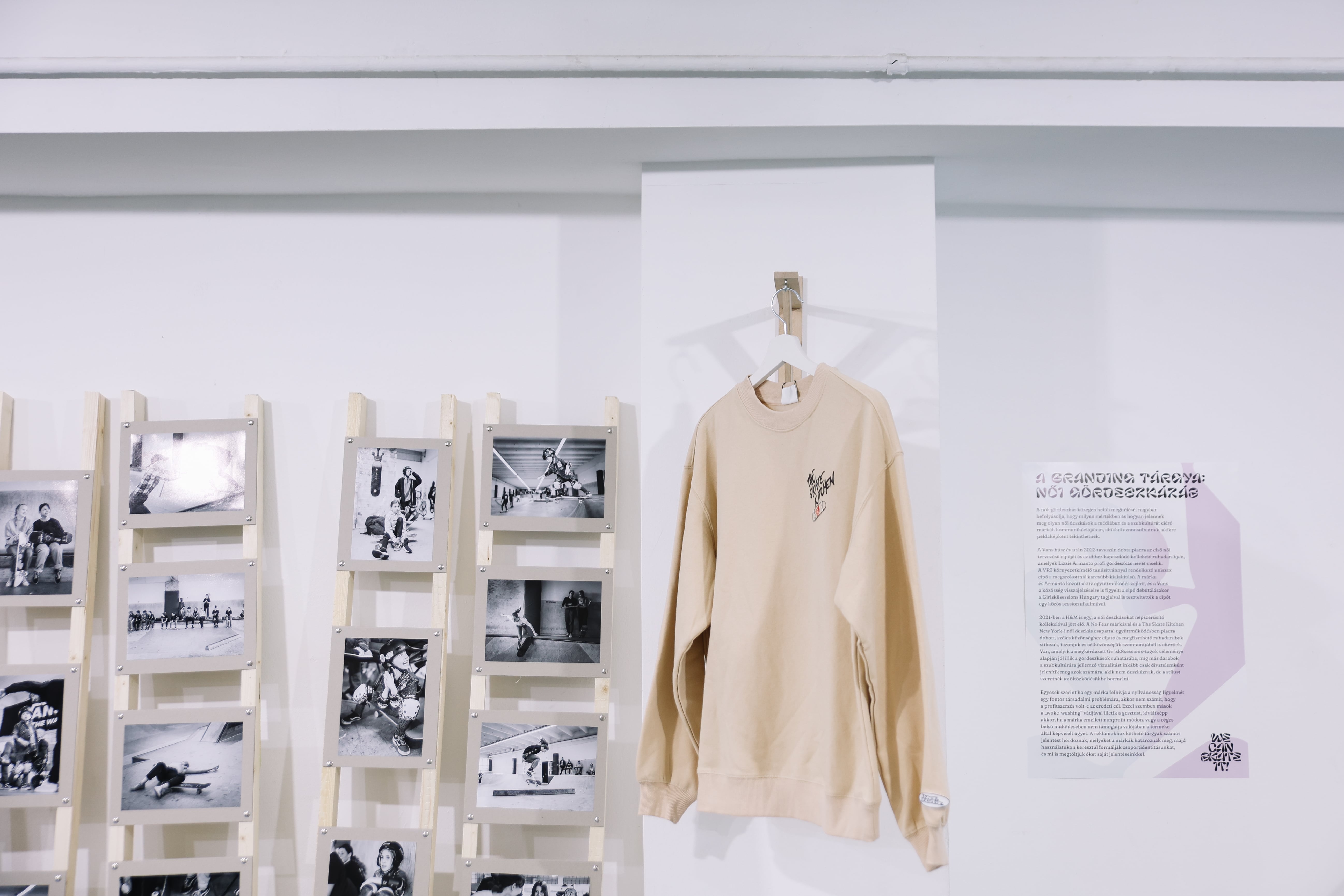
Exhibition on design culture of skateboarding among the female skateboarding community in Hungary.
Women have been present in skateboarding since the beginning of the sport (or lifestyle, as others may refer to it), yet they have remained underrepresented in the industry for decades.
The decline of skate parks in the 80s and how skateboarding
has transformed into a street activity did not help them either. Social and cultural conventions suggested that a woman’s place is not on the street, especially if the activity she is doing is dangerous and illegal. Due to these circumstances, they have been on the periphery for a long time.
Skateboarding as a sport has evolved significantly over the past decade. Thanks to this, the position of women within the skateboarding community and industry has changed for the better: competition organizers, sponsors, brands, and the media have started to give more and more attention to female skateboarders. Meanwhile, skate sessions organized specially
for women and girls also have begun to appear around the world. In Hungary, the first such event was held in the summer of 2021 and attracted more girls than even the organizers expected.
On that day, Girlsk8sessions Hungary was founded.
Since skateboarding has been embedded into the collective unconscious as a male-dominated industry, it is increasingly harder for women and members of the LGBTQ community
to get involved. The girls-only sessions aim to make it easier and provide a space where participants can motivate each other, build community, practice, and become more confident on and off the skate parks. Although many riders around the world consider skateboarding as a community-building and liberating activity, the way female skateboarding could be represented differs from culture to culture. In many Afghan communities, where women are not even allowed to ride bicycles, skateboarding has become
a symbol of learning, freedom, and empowerment (thanks to
the nonprofit organization Skateistan) although it is still only accessible to a minority.
At the same time, however, the world’s leading professional female skateboarders have appeared on social media as influencers, where they have the opportunity to promote
women’s skateboarding to millions. WE CAN SKATE IT! aims
to give visibility to the Hungarian women’s skateboarding communities and to show the cultural aspects of social
inequalities within the subculture.
What media coverage have female skateboarders received until the early 2000s, and what changes did social media bring to
this? How do different global brands respond to the under-representation of women within the industry? How can an
object, logo, or advertising campaign contribute to the visibility
of the community? The exhibition seeks to bring us closer to understanding the subculture. With photography, video, and objects the exhibition seeks to bring us closer to the under-standing of the subculture by presenting personal stories
of Girlsk8sessions members and global issues affecting
women’s skateboarding.
WE CAN SKATE IT!
17.06.–07.07.2022, TELEP Gallery, Budapest
Curators: Kitti MAYER, Noémi VISKI
CONTRIBUTORS: Dóra GRABECZ-HORVÁTH, Marianna HERCZEG, skateboarders of
Girlsk8sessions (Bogár CSANÁDY, Blanka GERLÓCZY, Kinga GERLÓCZY, Csengele
HORN-BARTA, Betti IGNÁCZ, Fanni KONDA, Jonka MÁRKI, Laura NETLAVA)
Sponsors: Vans, Cirus Skateboard
Exhibited photos: Balázs MOHAI
Graphic design: Gergő ZÁMBÓ
Exhibition documentation photos: Lilla LISZKAY
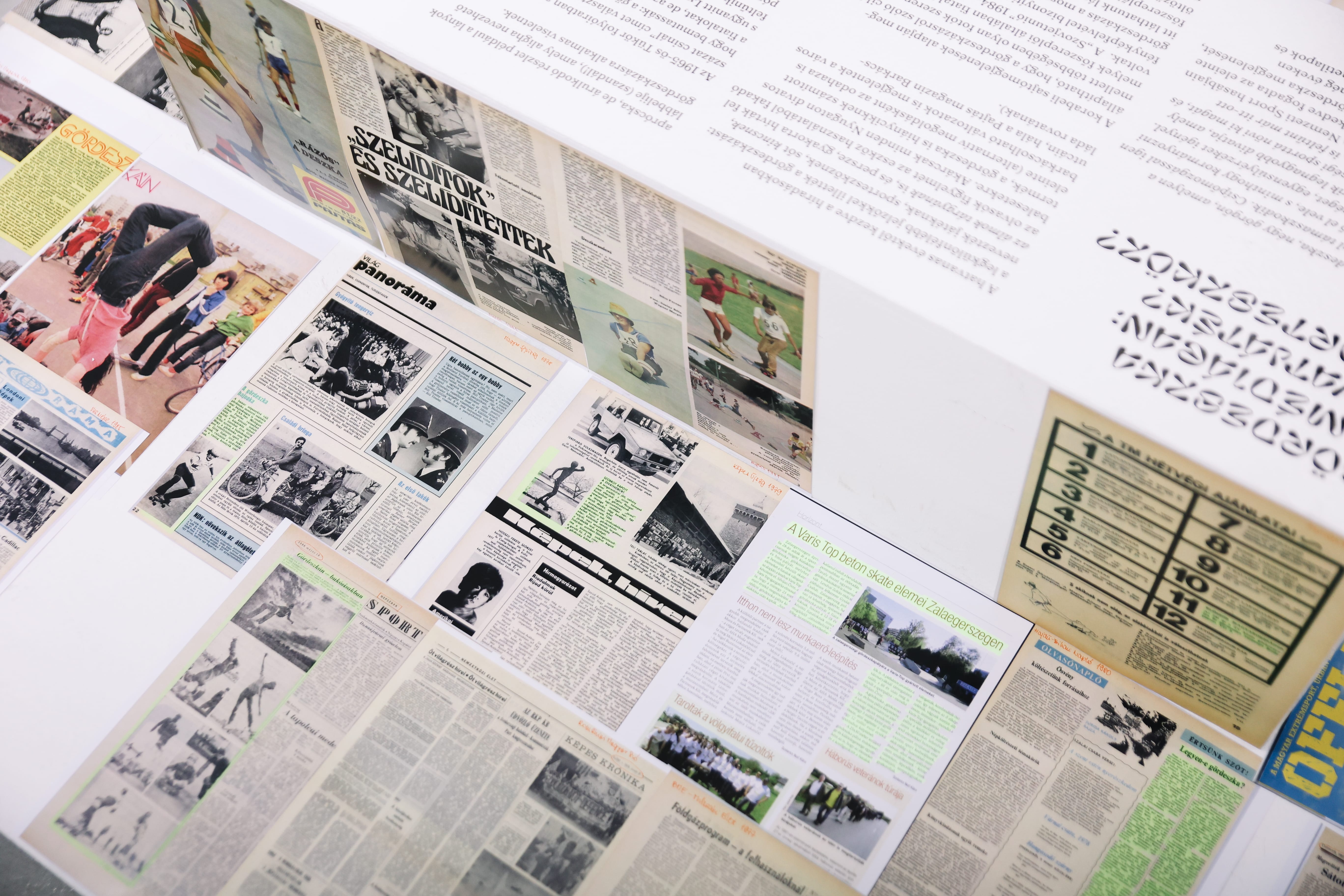
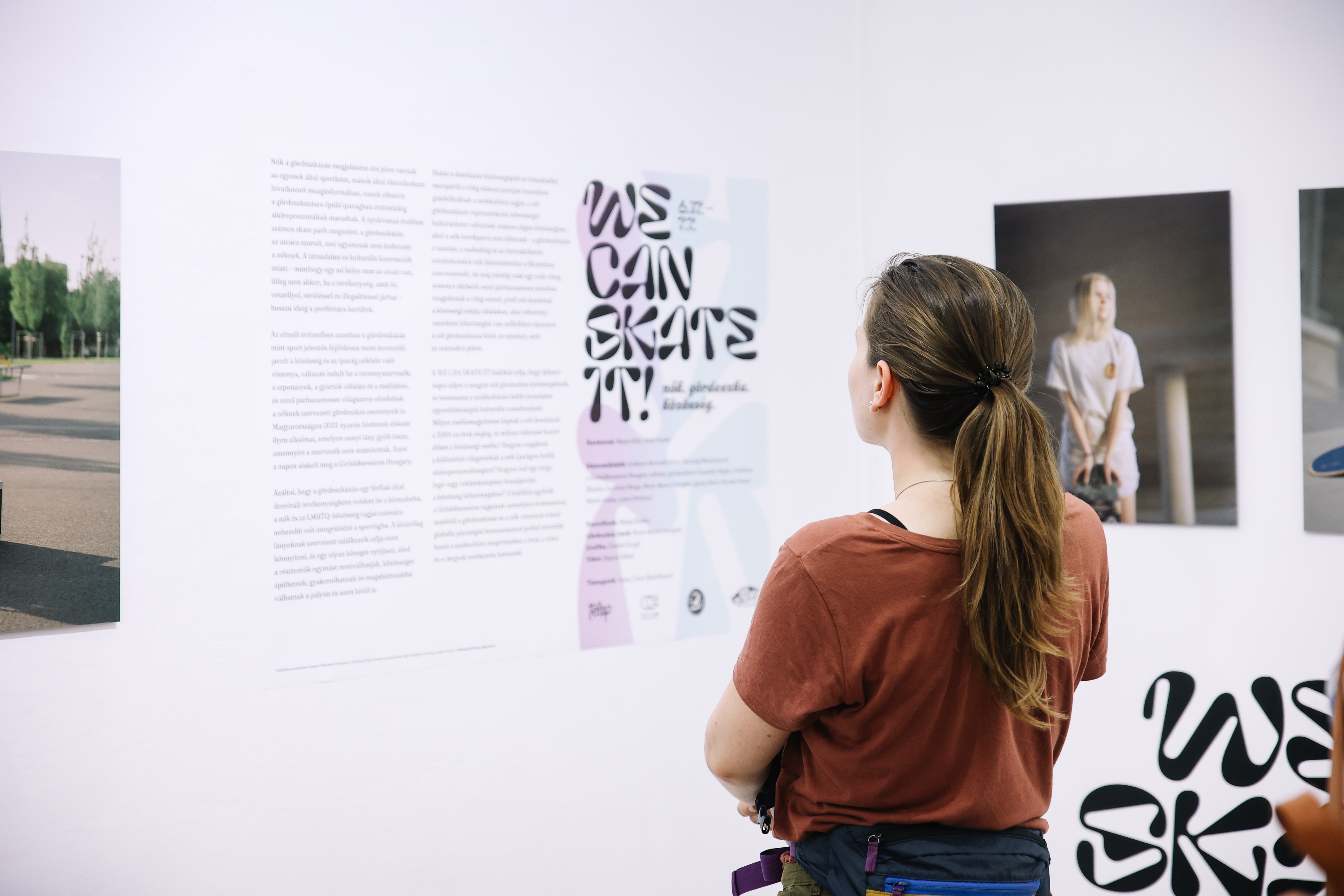
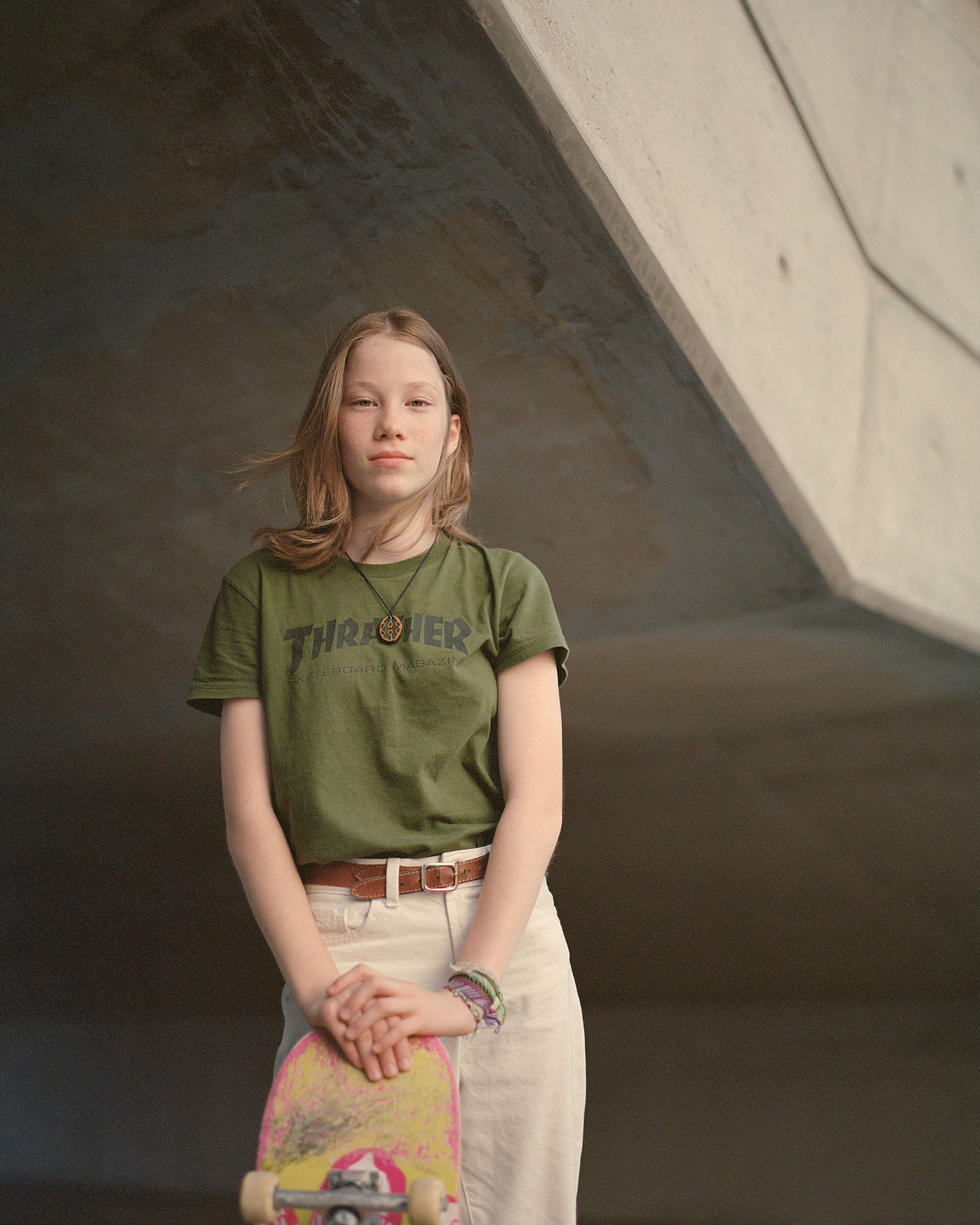
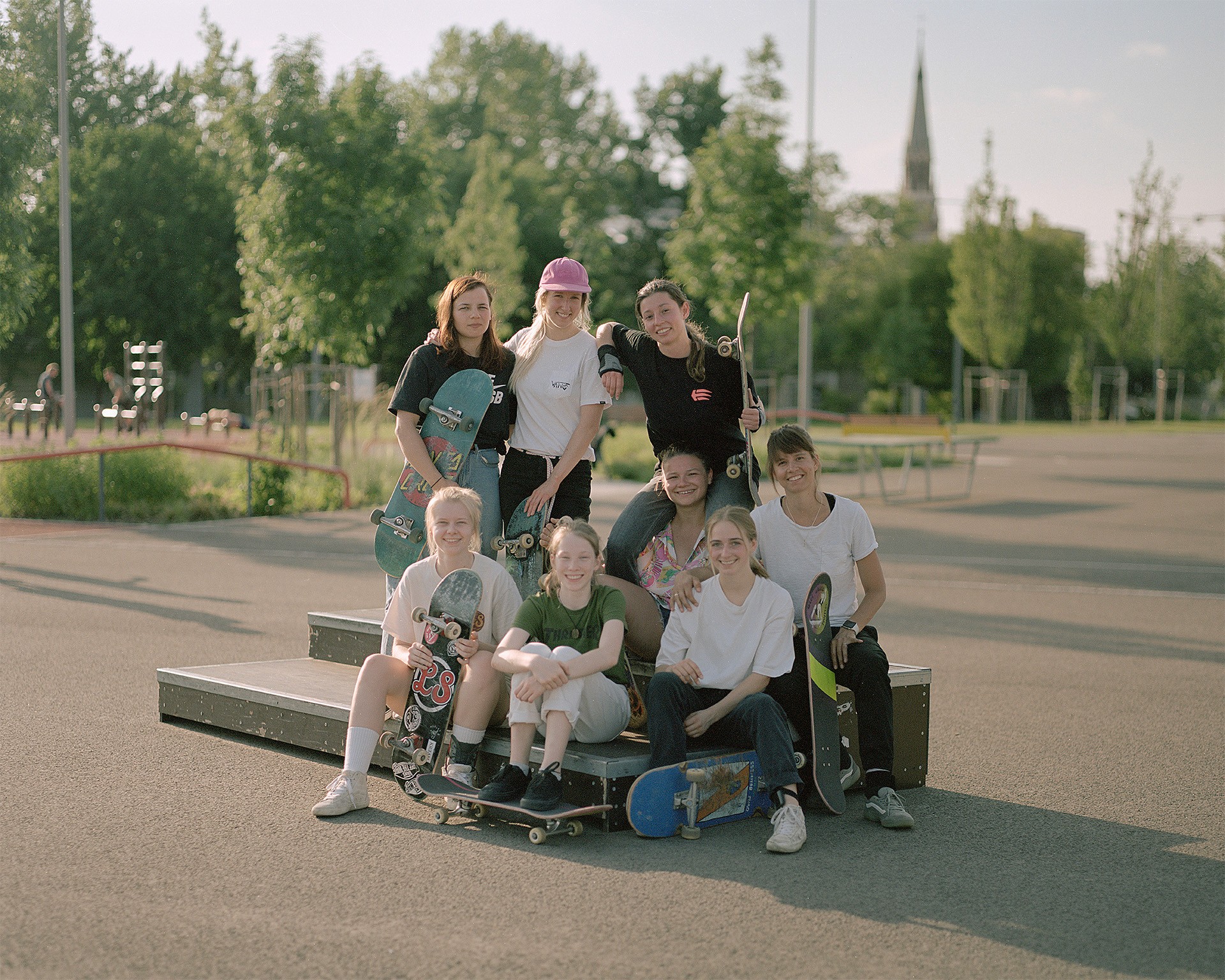
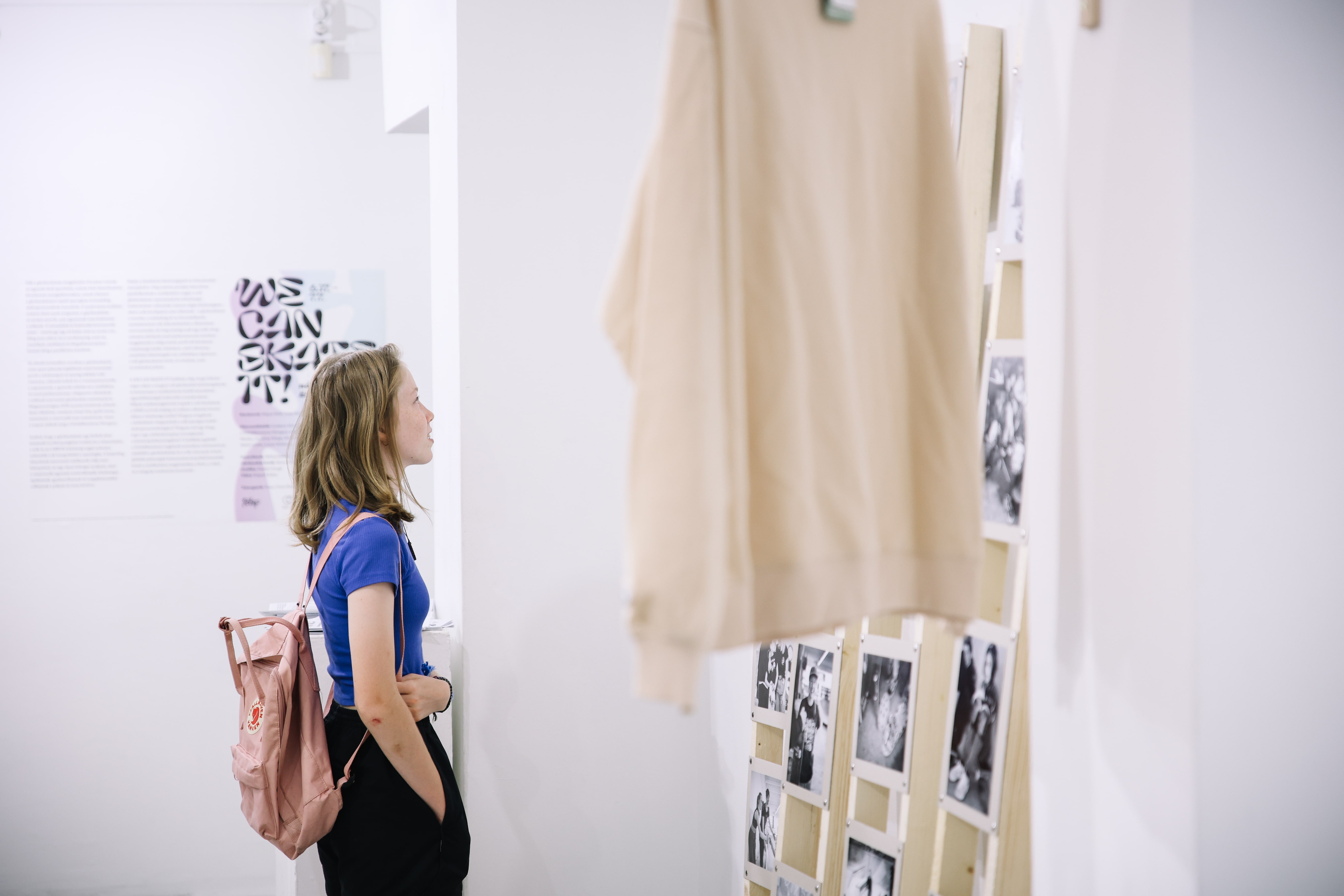
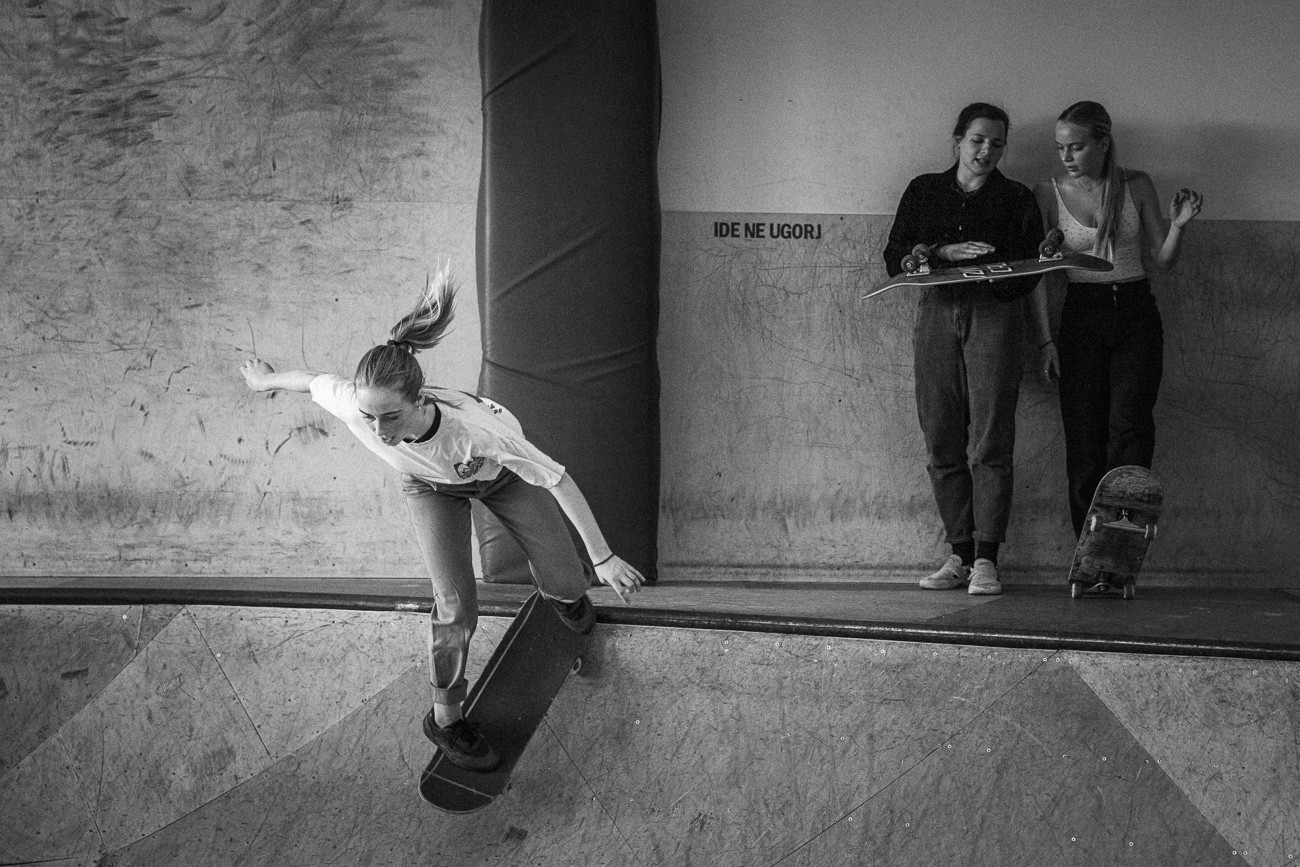
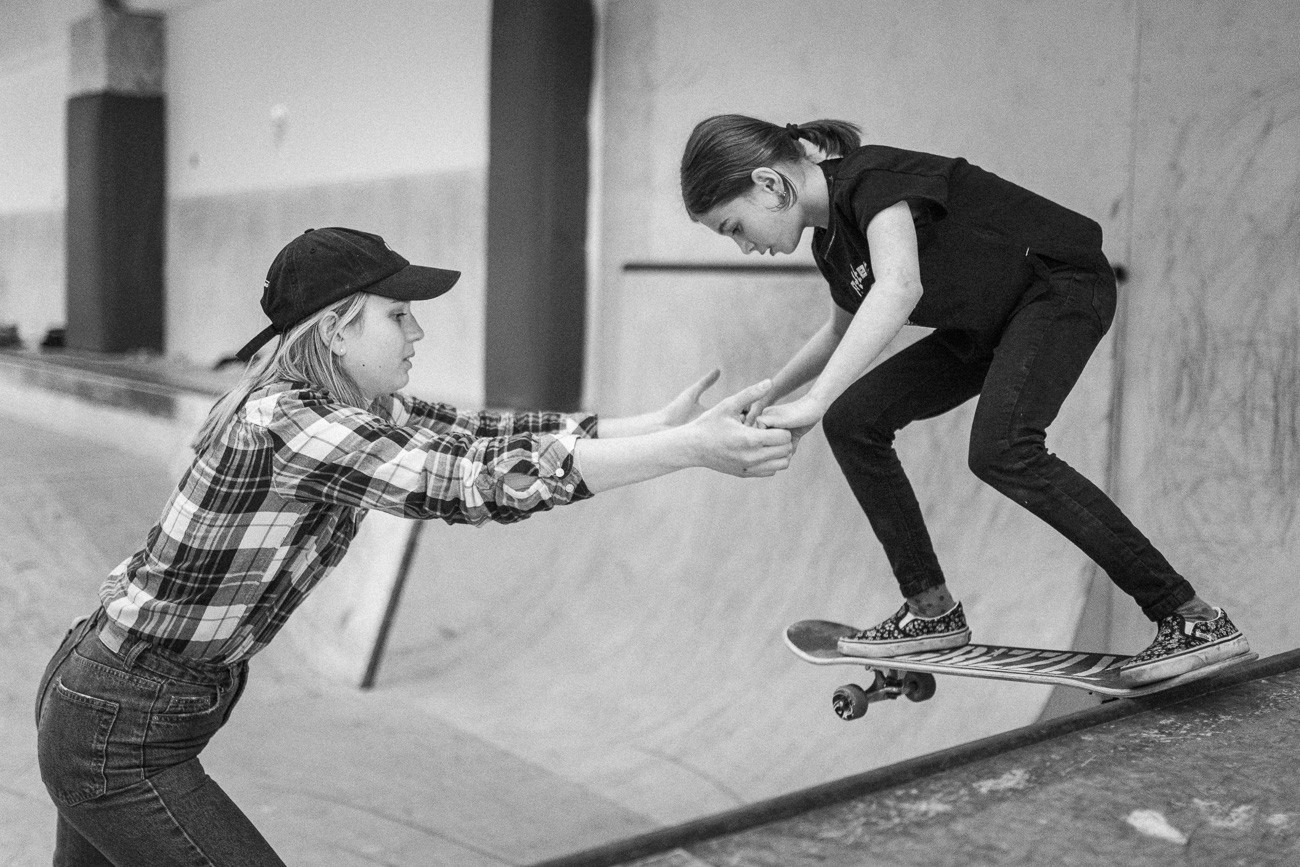
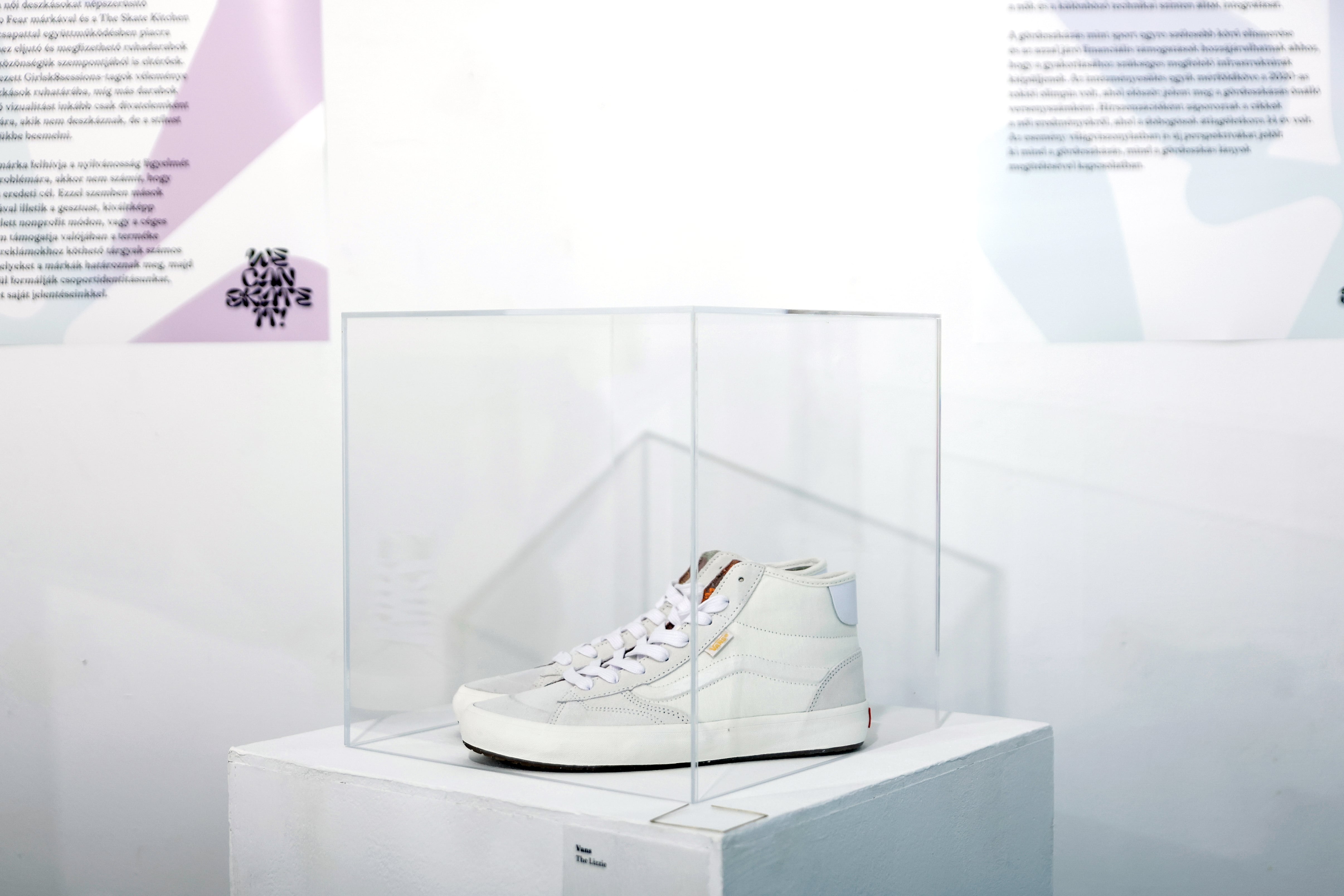
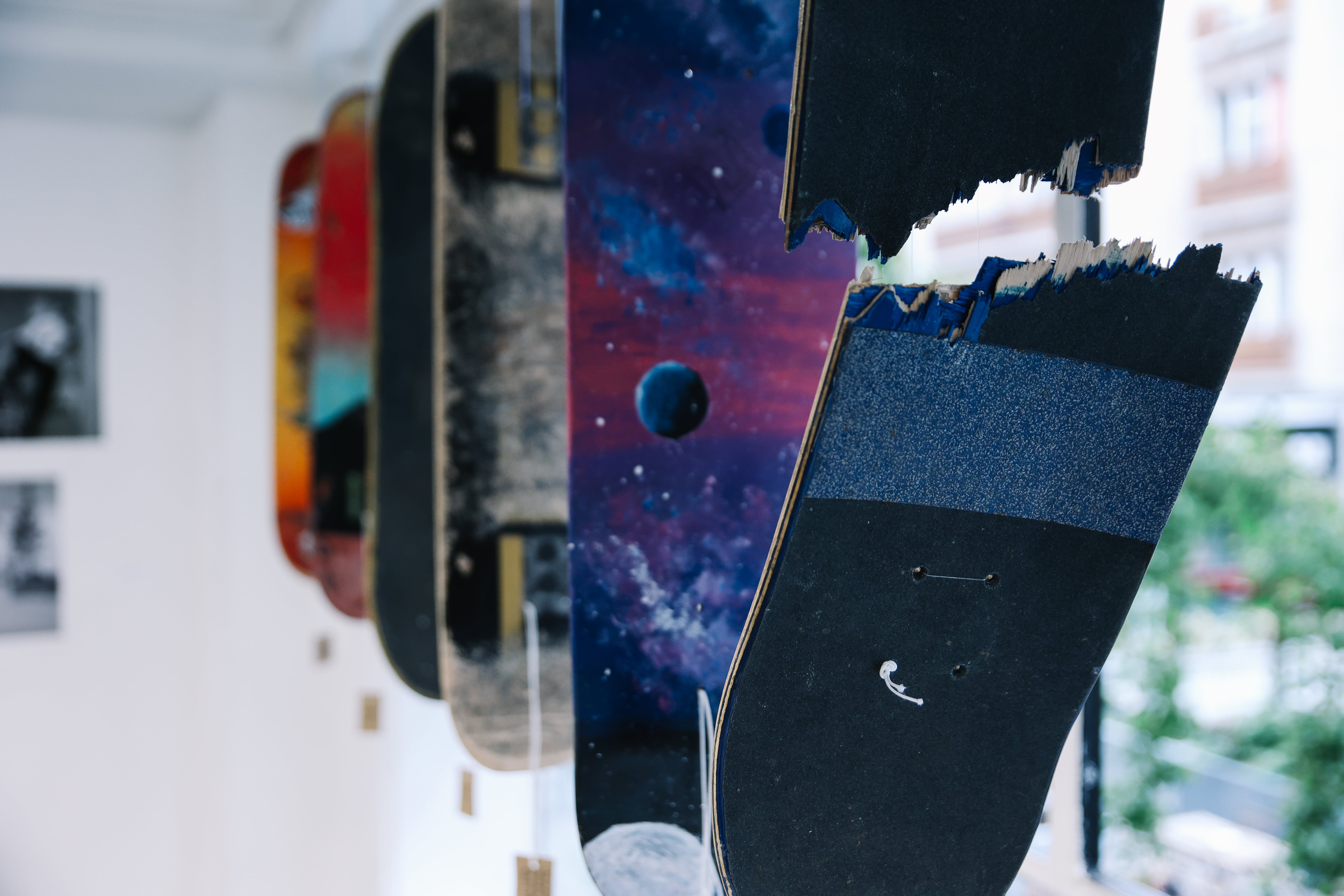
Photo: Balázs MOHAI
Photo: Balázs MOHAI
Photo: Balázs MOHAI
Photo: Balázs MOHAI